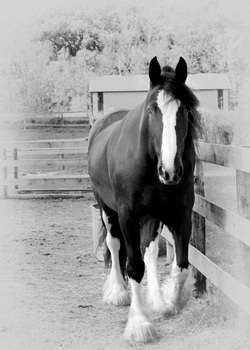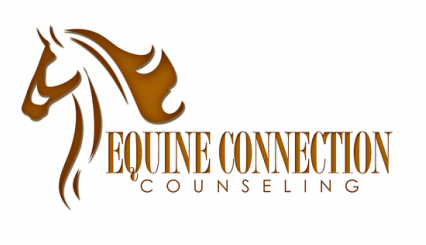What is Equine Assisted Counseling?

Equine assisted counseling is an intervention used in counseling or psychotherapy which incorporates interaction with equines into the therapy process. Just like other forms of counseling or psychotherapy, equine assisted counseling focuses on lessening symptoms or disorders. It can also help people cope with life’s challenges and experience a greater sense of meaning in their lives. Interaction with equines is used in conjunction with a variety of best practice counseling techniques and interventions such as trauma processing, psychoeducation, cognitive behavioral strategies, behavioral interventions, problem exploration, motivational interviewing, mindfulness and grounding skills, play therapy, and more.
You will collaborate with your counselor to create a treatment plan outlining your goals for counseling or psychotherapy. Your counselor will routinely administer clinical assessments to track your progress. Your counselor also maintains progress notes and other client documentation consistent with best practice standards for counseling and psychotherapy. Our counselors comply with all ethical codes and legal rules for counseling and psychotherapy.
You will collaborate with your counselor to create a treatment plan outlining your goals for counseling or psychotherapy. Your counselor will routinely administer clinical assessments to track your progress. Your counselor also maintains progress notes and other client documentation consistent with best practice standards for counseling and psychotherapy. Our counselors comply with all ethical codes and legal rules for counseling and psychotherapy.
Who can provide Equine-Assisted Counseling?
Services are provided by licensed mental health professionals (or graduate student interns supervised by a licensed professional). Certified equine professionals co-facilitate with the counselors to maintain a safe environment for all involved. Equine professionals have extensive experience with equine behavior, herd management, and safe equine interaction practices. Some counselors are dually-qualified and can serve as both counselor and equine specialist.
How does Equine Assisted Counseling work?
Just as in office-based counseling and psychotherapy, your counselor will strive to establish a strong therapeutic relationship with you. In equine assisted counseling, this relationship is expanded to include the equine(s) and an equine specialist.
Equine assisted counseling takes place in a tranquil, outdoor environment such as a pasture, pen or barn as opposed to a traditional office setting. There is no riding involved. Working with the equines in their natural environment and without attempting to exert control over them, allows the equines to respond to you in a natural manner, as if you were part of the herd.
Equines notice many cues indicative of a person’s emotional state such as breathing rate, heart rate, body language, facial expressions, tone of voice, and even scent. The feedback they provide will assist you in gaining insight into thoughts, feelings, and behaviors as they are happening in the moment. Your counselor will help you connect these experiences to challenges you may be facing. In addition, you will have the opportunity to practice different skills such as problem-solving, decision-making, calming skills, and communication skills that can be generalized and applied to increasing satisfaction in your relationships and daily life.
Not surprisingly, most clients tend to form a close relationship with specific equines. This relationship further motivates clients to engage in different activities with the equines designed to promote movement towards counseling or psychotherapy goals.
The interventions used by our counselors, in conjunction with equine interactions, are grounded in best practices in counseling and psychotherapy.
Equine assisted counseling takes place in a tranquil, outdoor environment such as a pasture, pen or barn as opposed to a traditional office setting. There is no riding involved. Working with the equines in their natural environment and without attempting to exert control over them, allows the equines to respond to you in a natural manner, as if you were part of the herd.
Equines notice many cues indicative of a person’s emotional state such as breathing rate, heart rate, body language, facial expressions, tone of voice, and even scent. The feedback they provide will assist you in gaining insight into thoughts, feelings, and behaviors as they are happening in the moment. Your counselor will help you connect these experiences to challenges you may be facing. In addition, you will have the opportunity to practice different skills such as problem-solving, decision-making, calming skills, and communication skills that can be generalized and applied to increasing satisfaction in your relationships and daily life.
Not surprisingly, most clients tend to form a close relationship with specific equines. This relationship further motivates clients to engage in different activities with the equines designed to promote movement towards counseling or psychotherapy goals.
The interventions used by our counselors, in conjunction with equine interactions, are grounded in best practices in counseling and psychotherapy.
Why equines?
Research studies have demonstrated numerous benefits of interacting with animals such as reduced blood pressure, reduced anxiety, increased “feel-good” hormones and decreased stress hormones. In addition, as animals have been shown to help facilitate relationship development between people, the presence of equines supports the development of a strong therapeutic relationship.
As prey animals, equines are constantly aware of everything and everyone in their environment. For this reason, equines have a high level of attunement in perceiving human feelings, even those feelings that we ourselves may not consciously know we are experiencing. This makes equines ideal partners in counseling because equines are:
We view the equines as true partners in your healing journey. As sentient beings capable of offering valuable contributions, we allow them to respond naturally and organically during each session.
As prey animals, equines are constantly aware of everything and everyone in their environment. For this reason, equines have a high level of attunement in perceiving human feelings, even those feelings that we ourselves may not consciously know we are experiencing. This makes equines ideal partners in counseling because equines are:
- Inherently genuine and authentic - they can't lie and don't pretend to be something they are not. They will provide you with real feedback based on your interactions together.
- Nonjudgmental - they accept who you are as an individual person.
- Empathic - their heightened sensitivity to the environment enables them to understand your feelings on a deeper level.
We view the equines as true partners in your healing journey. As sentient beings capable of offering valuable contributions, we allow them to respond naturally and organically during each session.
What are the benefits of Equine Assisted Counseling?
- Build trust and rapport between counselor and client, thus strengthening the therapeutic relationship
- Facilitate feelings of peace and relaxation enabling clients to feel more at ease when processing upsetting or stressful experiences
- Learn and practice new skills such as coping skills, problem-solving, communication skills, social skills, calming skills, decision-making, and stress management
- Gain insight into unhealthy behavior patterns
- Explore beliefs about self, others, and the world
- Enhance awareness of somatic (bodily) sensations connected to thoughts and feelings
- Promote increased focus, concentration, and awareness
- Increase self-confidence and feelings of empowerment
- Identify and verbalize emotions and the connections between thoughts, feelings, and behavior
- Address symptoms and impairment related to a variety of concerns such as posttraumatic stress disorder (PTSD), trauma, anxiety, depression and other mood disorders, child behavior problems, attention difficulties, relationship problems, anger issues, and more.

